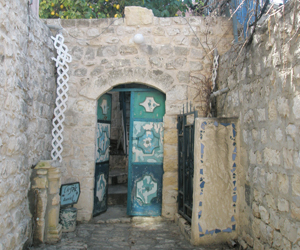The Crusaders
After the Normans were settled in France and had conquered England, France, England and the Holy Roman Empire found they were holding the reigns of power and were stronger than at any time since Charlemagne. The ruling kings and queens, just as Charlemagne before them, thought about taking back the entire Mediterranean basin and making a new entity, not unlike the Roman Empire. The city these rulers coveted most was Jerusalem, considered to be the city of Jesus Christ, but which was at that time under the control of the Islamic Fatimids.
Call To Arms
Pope Urban, speaking in 1095 AD in the city of Clermont, in the south of France, urged the people to take up weapons and release Jerusalem from the rule of the Fatimids. There was a wild clamor of support for this idea from the youngest to the oldest of those hearing the Pope's call to arms. Several groups took off on the long journey to Jerusalem, before even the main, organized group of Crusaders set off on their way to the Holyland.
There was a belief that God would tear down the walls of Jerusalem once they arrived and so these beginning Crusaders believed that weapons and fighting would serve to be superfluous concepts. So secure were some in their belief that God would perform the necessary work on their behalf that they chose not to bring money along for the journey. The groups discovered that traveling and fighting were not as easy as they had supposed and the majority of them died during the journey.
One such group gave up on reaching Jerusalem and decided to stop in Germany and fight the Jews, instead. The group pillaged Jewish possessions and killed thousands of Jews for the crime of not being Christians.
Ultimate Destination
In autumn of the year 1096, the main Crusader group was deemed ready to travel to Jerusalem. The group split off, traveling varied routes, some by sea, and some by land, to Constantinople, where the Emperor Alexius became alarmed at the prospect of a coup. Alexius made haste to send the groups on to their ultimate destination: Jerusalem.
At first the Fatimids were not unduly concerned because they misread the Crusaders as consisting of a small army of Roman soldiers hailing from Constantinople, who were spoiling for a little battle in Syria. The Crusaders reached Jerusalem in May 1098, surprised at the evidence of a civilized society with advanced architecture, heated baths, and state-of-the-art medical know-how. While the Crusaders had their share of military fiascos, the Fatimids, already preoccupied with their battles with the Seljuks were found easy to overcome and Jerusalem and other cities fast came under control of the Christian militants.
Over the course of the next two centuries, Crusaders continued to flow into the Holy Land from Europe at the behest of Pope Urban II who urged Christians to wrest control of the land from the infidels. As the Crusaders opened up travel routes to the Middle East, large numbers of Jews sought a return to the land they called home.
Limited Freedom
Muslims under the military command of Saladin overthrew the Crusaders in 1187 and a period of limited freedom was then extended to the Jews who were then permitted by the Muslims to live in Jerusalem. The Crusaders managed to regain a toehold on the country, however, maintaining a network of fortified castles after Saladin's death in 1193. The final defeat of the Crusaders occurred at the hands of the Mamluks in 1291.

